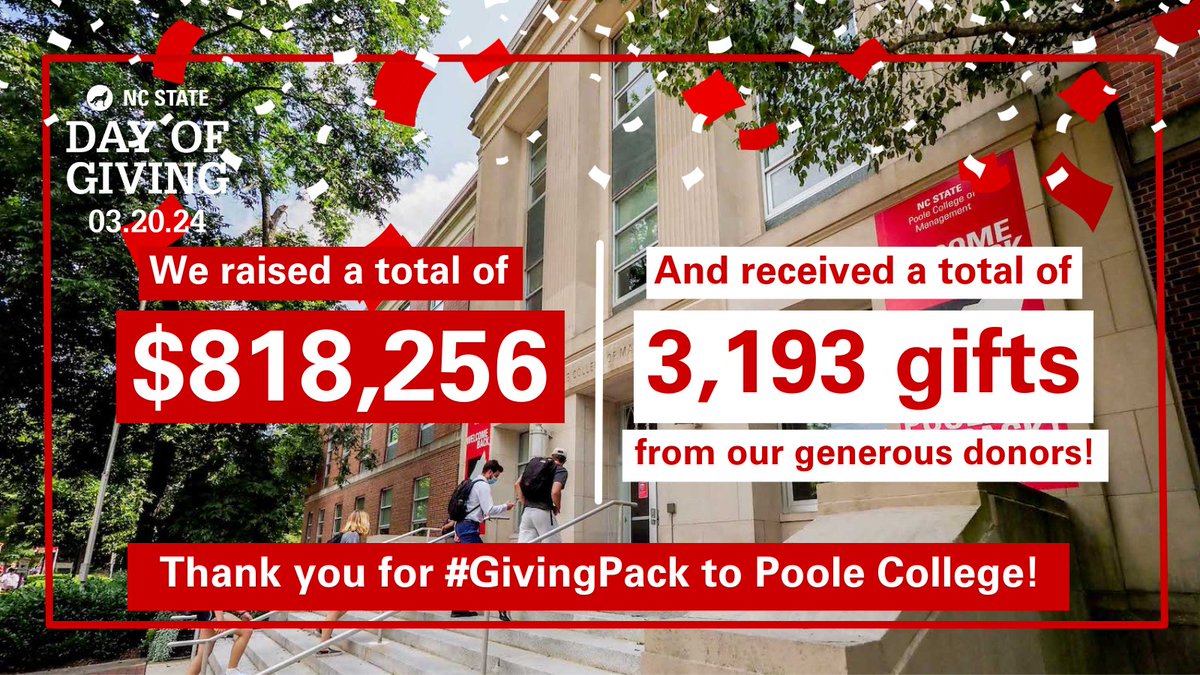NC State’s Jenkins MBA Program Teams with IBM and its Sustainability Initiatives
The project begins on a cold, rainy night at NC State’s Gregg Museum of Art and Design, with Dianne F. Fodell, program director of innovation and university relations at IBM, asking 18 students some compelling questions: How do you feel Raleigh wastes its resources, and if given a chance to help the city, where, as MBA students, would you start?
Why MBAs Must Understand Sustainability
To get the students thinking, Fodell shares some of IBM’s major sustainability projects. Consumer products and retail industries waste $40 billion per year or 3.5 percent of sales due to supply chain inefficiencies, according to research conducted by A.T. Kearney. In a world where more than 800 million people are undernourished, grocers and consumers throw away $48 billion of food per year according to the United Nations. To counter this, IBM is working with companies like Matiq to develop a smarter food tracking solution. “This uses RFID technology to track and trace meat and poultry from the farm, through the supply chain, to supermarket shelves.”
Drewry Shipping Consultants, Ltd. found that up to 22% of total port volume in North America is empty containers. But IBM has created an innovative tracking system that helps shippers manage supply chains, reduce empty cargo containers and monitor the condition of container contents. “This is all communicated wirelessly and shared over the Internet with partners,” Fodell says.
Congested roadways are another huge global problem costing $78 billion annually in the form of 4.2 billion lost hours and $2.9 billion gallons of wasted gas, according to a Texas Traffic Institute’s Urban Mobility Report.To counter this IBM is working with Stockholm, Brisbane and Singapore to deploy smarter traffic systems. Twenty or so other cities have active bids to do the same. Already, Stockholm has seen roughly 20 percent less traffic, a 12 percent drop in emissions and 40,000 additional daily users of public transportation, Fodell says. “Sustainability issues can be changed with good strategy, instrumentation, analytics, and optimizing systems such as supply chains and transportation,” she insists.
The Jenkins MBA Program and Sustainability
Top business schools across the nation know this—and NC State’s is no exception. Its Jenkins MBA students are tackling these issues head-on in their project-based supply chain management and biosciences management courses, as well as in this creativity course.
That college-wide emphasis is what led Lonnie Poole, who founded his own business – Waste Industries USA, Inc. – on principles of sustainability and ethics, to award the college with a $37 million naming gift. Ira Weiss, dean of the now-named Poole College of Management, has committed to strengthening its emphasis in this area by creating a center of excellence in sustainability. And AACSB, the non-profit group monitoring trends and practices at business schools world-wide, hosts a Sustainability Conference in Charlotte, NC, this June. The event addresses sustainable business, corporate responsibility and ways to implement effective changes at corporations and business schools.
IBM Puts the Students to Work
Fodell asks the students for help with IBM’s efforts. Together with instructor Dr. Ennis, who is also the curator for two of NC State’s galleries, she has the students form teams, define a project and gain her input and guidance as they proceed. Next the teams must research precisely how much waste is going on and provide compelling, legitimate ways in which the area can become more efficient, more sustainable. Ennis says such projects are always wonderful. “Hands-on learning like this has the MBAs apply their ideas and strategies learned in business school to real, live and rewarding projects,” Dr. Ennis says. “It requires strategy, creative thinking and team work.”
Students enjoy the assignment too. Emily Curley, a marketing major and student in the Creativity in Management course says that it feels good working on sustainability, especially through such a prestigious company as IBM.”Through the NC State MBA and IBM project we have a chance to give something back to Raleigh, while working on our business management degree. It’s an incredible gift,” Curley says.
Creative Uses for RFID technology and more
Last year’s Creativity in Management students produced some solid ideas for improvement, Fodell says. One team suggested using RFID technology to track waste. Another team proposed having retail store receipts highlight “green” products and stores providing point credit for customers who made smart purchases. Another team proposed using RFID technology to determine the availability of open machines at the gym, before actually driving to the gym. “We are curious to see what the students find this year. MBAs at the NC State Jenkins Graduate School are always very enterprising,” Fodell said. With the project deadline looming, the students feel challenged, but in a good way. Curley says the Jenkins MBA program pushes them to do better and be better. “Projects like this one with IBM teach us so much. As always, we’ll be working very hard to get results.”
Read More
Dean Weiss Announces Plan to Establish Center of Excellence in Sustainability
GreenPlus Fellowship Helps Jenkins MBA Student Follow Her Passion


